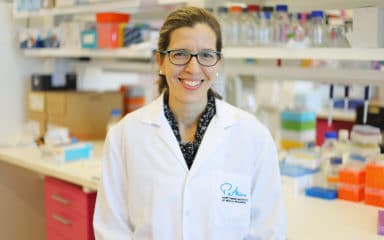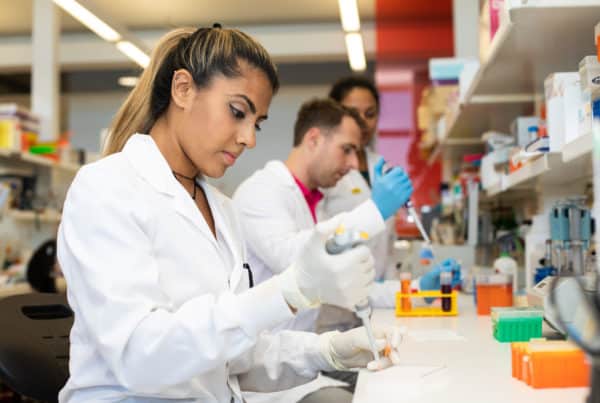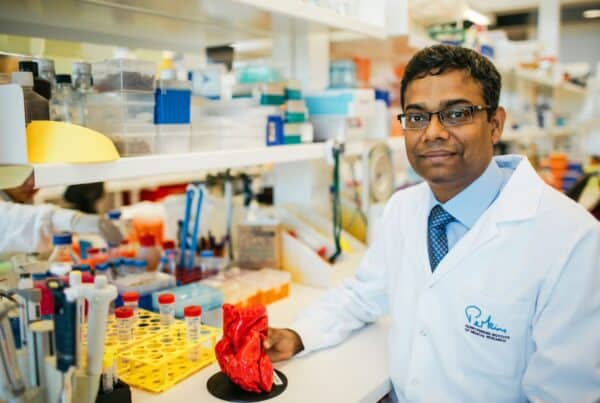Perkins submission to the Draft National Health and Medical Research Strategy
Read More
Translational 3D Printing Laboratory for Advanced Tissue Engineering (T3mPLATE) is a biomedical engineering laboratory that focuses on the development of a pioneering 3D printing technology, known as melt electrowriting. This technology enables the production of highly controlled fibrous scaffolds with tailored mechanical properties for tissue engineering and biomedical applications. These very precise customised scaffolds can be used for the regeneration of heart valves and other soft tissues.
A major research focus for this laboratory is improving cardiovascular health. By using the latest advances in 3D printing to improve treatments, the T3mPLATE team hopes to make a meaningful difference to the lives of those facing cardiovascular disease, which kills 1 Australian every 12 minutes. This involves engineering tissue models that more authentically represent natural cell growth in the human body, rather than growing cells in a petri dish. By using these models, the team can test drug compounds on different cell types outside the body and get a clearer idea of how they will behave in the body.
The team are also developing 3D printed scaffolds that can help promote the body’s own healing processes. Human bodies have an incredible capacity for regeneration and healing but there are certain circumstances where a body can’t regenerate without help, for example if you’re in a serious car accident and require surgical plates to support a badly fractured bone. What the T3mPLATE team is developing is a biocompatible structure that can be filled with your cells and anchored in an injury to guide the natural regeneration process and boost cell growth in your area of need.



